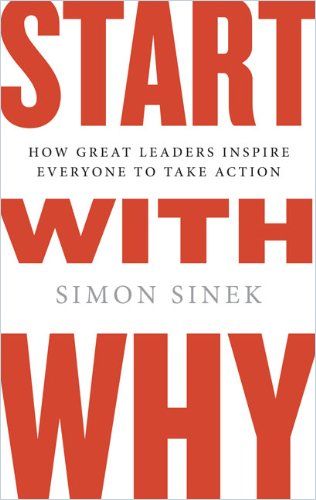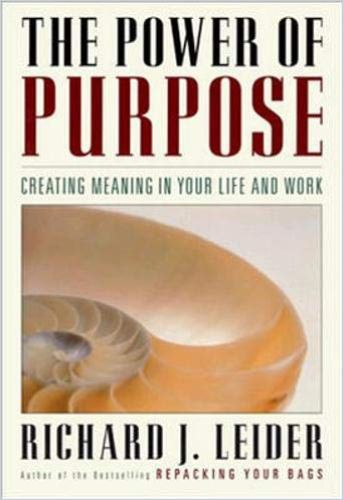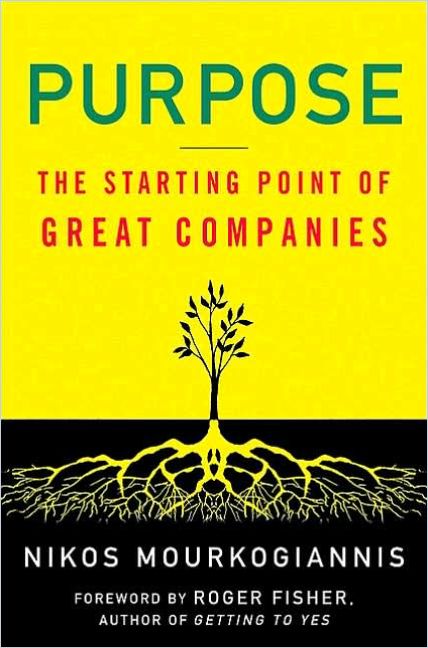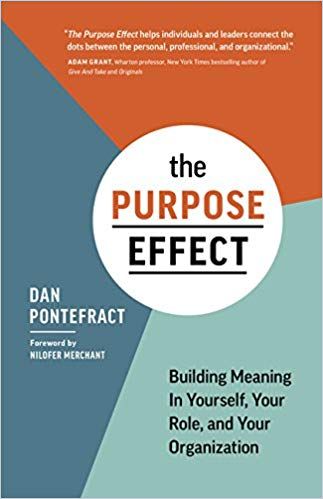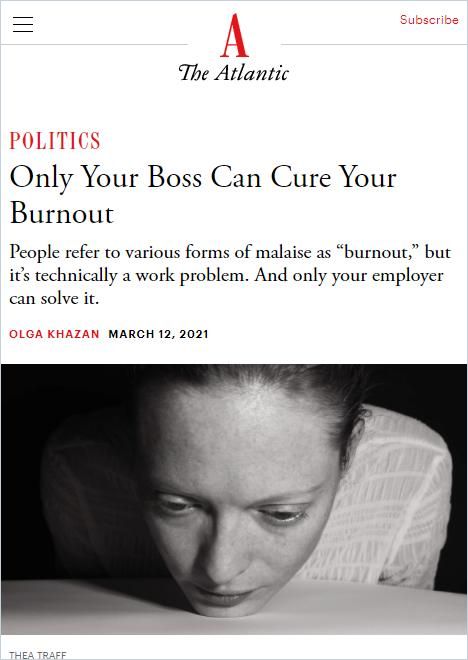Purpose Problems

People have always sought meaning in their lives: It’s human. And many modern civilizations rest on the quest for understanding. Nevertheless, with the decline of classic “meaning-makers” such as religions, groups and communities that either provide meaning or continually create it, people in modern, diverse, and highly labor-divided societies face a problem: How are they to fill the void?
Simon Sinek’s Start with Why from 2009 may be one of the most popular titles in our library, but Richard Leider already tackled the topic with The Power of Purpose in 1997. Other influential titles include Purpose by Nikos Mourkogiannis (2006) and The Purpose Effect by Dan Pontefract from 2018. The messages are similar: If you find meaning in your work, you can live a huge part of your life in a more fulfilling way – and also work more productively.
The promise is that finding happiness is no longer a matter of private life but can be part of the job profile, and employers and employees both stand to gain if they make it happen, even make it their priority.
It is interesting to note that the “meaning” or purpose of a job is not something that can be brought in from the outside; each employee must discover it for him or herself. Meaning can be created by a good salary, a nice team, opportunities for promotion, fulfilled idealistic ideals on what is produced (electric cars are more popular than cheap plastic toys), a nice office (possibly at home), a good boss, and so on.
What these books fail to mention – at a deafening volume – is that only a fraction of the jobs on this planet are knowledge jobs, where “purpose” looms large but does not necessarily come with those jobs (as it would, for example, with a furniture designer or a quarterback). Among privileged knowledge workers, those who can see a purpose in their work are not the majority. One thing is certain, though: More and more people are looking for meaning in what they do as well as pay for their homes and get their families through, a point which the COVID-19 pandemic and the Great Resignation have impressively demonstrated.
But is this search truly healthy? Or are more and more “normal” workers facing tasks that beg the question “Why?” and threaten to break them? A number of new books are devoted to this sensitive topic – sometimes with bold, but thoroughly well-meaning theses.
Work Won’t Love You Back
The title is already pithy, but the stories journalist Sarah Jaffe tells in Work Won’t Love You Back are even more memorable. Illustrating her thesis with examples of individuals in search of their purpose – particularly in the gig economy – she asserts that: The purpose idea has long since become an HR sales pitch, and what is advertised as purposeful ends up much more often as dependency and disastrous pay.
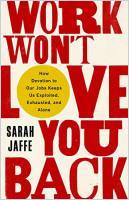
Jaffe demythologizes what she calls the “labor of love,” the current labor paradigm, in which employers insist that workers should love their jobs, even as those jobs become less stable, prestigious and remunerative. Jaffe uses theory, historical research and case studies to unmask the exploitation this myth enables, calling for solidarity across the new working class. Read our interview to find out more:
Gig Work
What is involved in Jaffe’s general critique of the “labor of love” has also been mentioned above: The trend toward more gig work. This refers primarily to employment relationships in the tech industry that are becoming increasingly flexible – freelance and on-demand work that operates in the background while regular full-time positions are being cut.
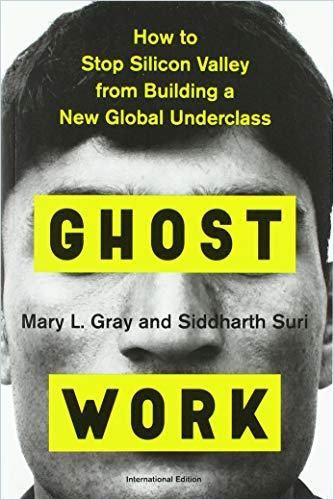
This new class of disposable, nonunionized labor grew as the service and information sectors exploded in the second half of the 20th century.
By the 1990s, Mary L. Gray and Siddharth Suri explain in Ghost Work, the temporary staffing firm Manpower fed more workers into the workforce than General Motors had full-time employees. Companies regarded workers as “liabilities” rather than as assets worthy of investment and cultivation. Contingent, contractual piecework labor proved far cheaper.
Yes, outsourcing brought the added corporate benefit of avoiding US-style labor laws and unionization. The number of full-time employees who were able to bargain collectively shrank. “Permatemps” – people holding permanent part-time jobs on a so-called temporary basis – became mainstream.
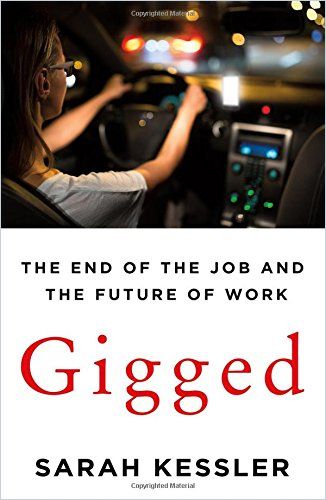
What benefits the companies financially, however, blocks the creation of meaning on the part of the employees.
If your job entails working through similar task lists for 50 different companies (such as cleaning up code, correcting texts or putting a face in the camera for their products) it’s hard to see where purpose fits in at all. Where generic work has to be done for many different clients, there’s simply no place for it.
Even though many people generally prefer to be paid lower if they can see more meaning in their work (think clubs or NGOs), you can’t keep this spiral going forever: Where livelihoods are not secure, employees will be asking serious questions of themselves as to whether they can continue in that way.
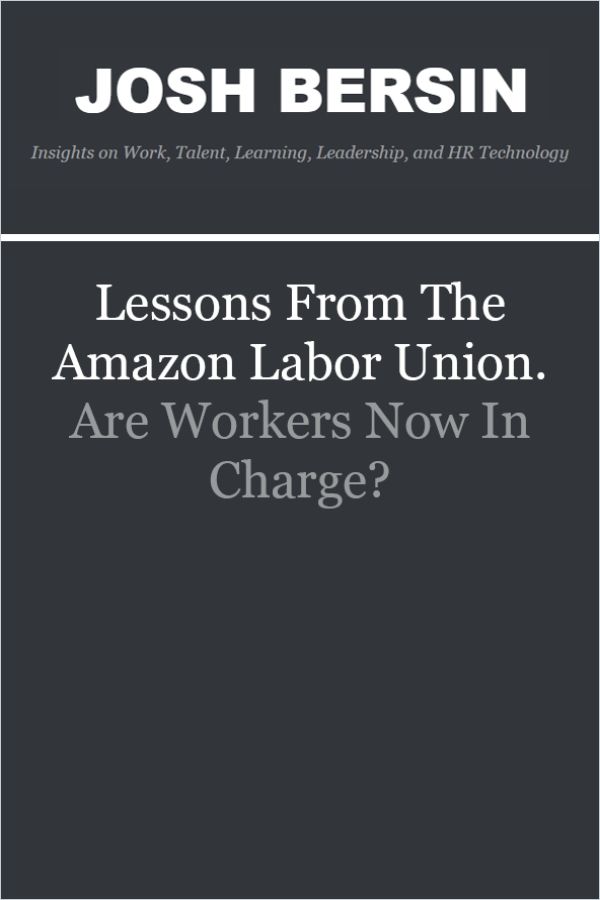
Two-thirds of workers today say their jobs do not secure them a ‘good quality of life,’ while about 26% consider their living situation precarious, writes Josh Bersin.
Under these circumstances, purpose must inevitably take a back seat in the job search, because those who want to improve their material living conditions will look first at the numbers and then at the meaning. That is sad, but the reality. And all the fine words from corporate PR and HR won’t explain it away: Less pay and more purpose still won’t feed the kids.
How Much Purpose Is Enough?
Back to the beginning: Meaning in one’s work can only be found and appreciated by each individual. Anyone who identifies with a job, a company or its values without contorting themselves to do so is simply lucky and should gratefully accept this.
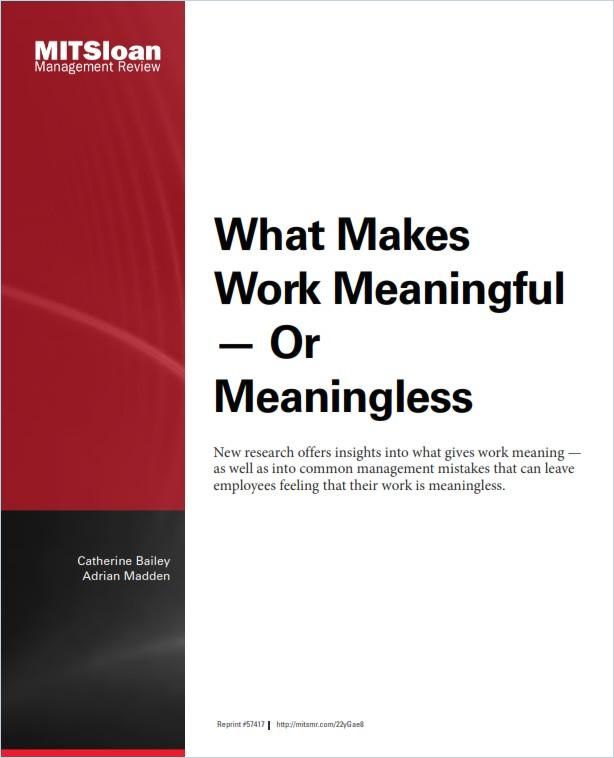
What Makes Work Meaningful – or Meaningless
MIT Sloan Management ReviewFor the majority of today’s employees, however, the Sunday sermons of purpose preachers are all too often cynical talk. Self-questioning and “finding your why” does not always help individuals. Listening to the constant exhortations to find meaning in working life can lead people to strive toward spiritual or motivational fulfillment, but if they don’t succeed in this quest, they can become even more unhappy and end up in a downward spiral.
Always remember:
- People find meaning in their work in profoundly personal ways.
- People usually experience meaningfulness in retrospect.
- Leaders can’t directly create meaningfulness, but they can easily destroy it.
- Leaders should build workplace ecosystems that support meaningfulness.
Instead of making something up or looking for something that is not actually realizable, you should rather reflect on which sources of meaning in life you have already discovered, and which are perhaps more significant to you than your job or work-life.
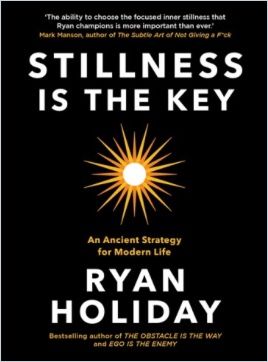
Author Ryan Holiday has an idea on how to get there: through “stillness.” Stillness is the ability to find equanimity amid the turbulence of life. If you can cultivate imperturbable inner calm, you can devote full focus to your activities rather than allowing your attention to fracture in search of something idealistic. Stillness is the power that a skilled athlete draws on to make the perfect move, and it is the birthplace of inspiration and sudden insights, and the awareness with which you appreciate the moments that make up a full life. And, well, basically all the wisdom of the ancient world agrees on this.
It is comforting to note that one can and should find meaning beyond a job.
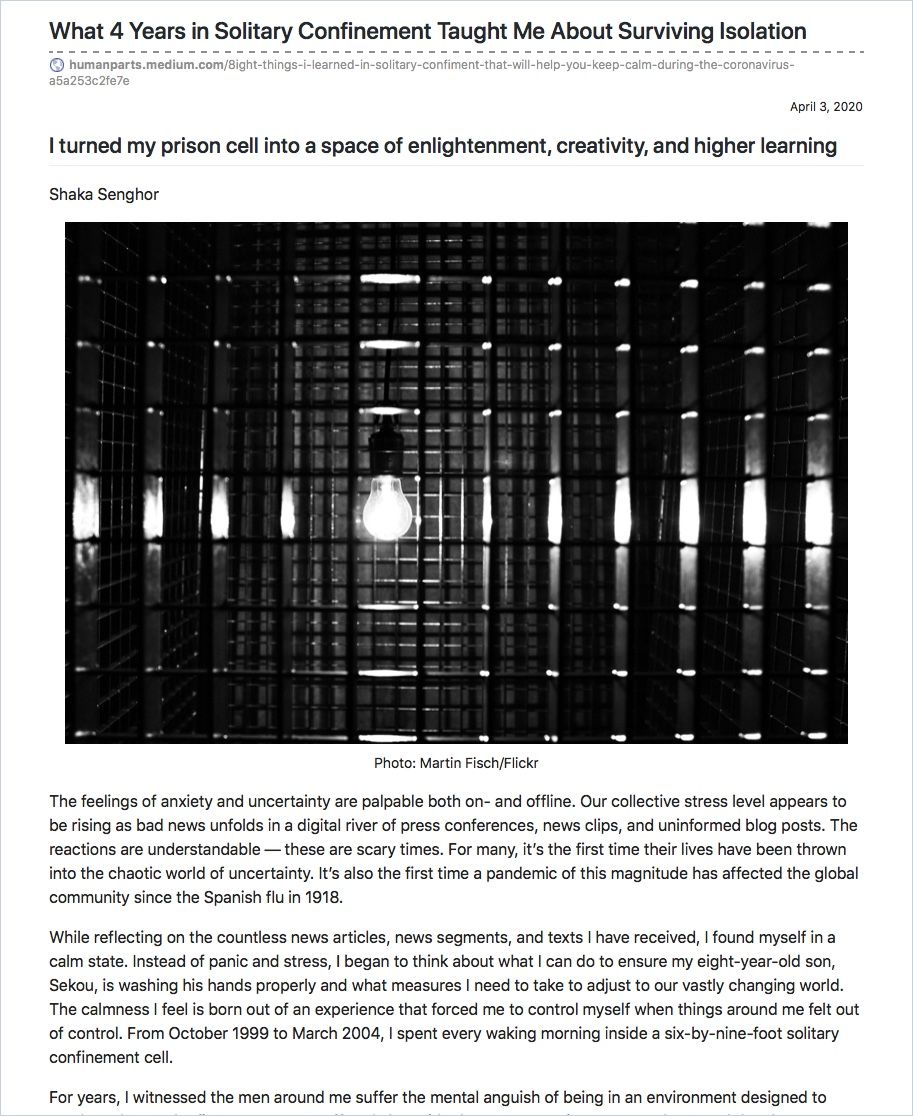
What 4 Years in Solitary Confinement Taught Me About Surviving Isolation
Medium Read SummaryOf course, it’s nice when work and private life complement each other when it comes to fulfillment. But the mantra of “success through purpose” is neither provable nor is it certain that combining the search for meaning with the world of work will lead to anything at all.
Work was and is an annoying necessity, which is why we have been trying for centuries to outsource it to machines, to make it more bearable, to delegate it.
The good news is: You can thrive and grow in very limiting circumstances. And, of course, help your workplace get better and brighter in terms of meaning day by day – especially in current times when employees find themselves in the driver’s seat compared to their bosses, and when talent is scarce and retaining it becomes harder.
